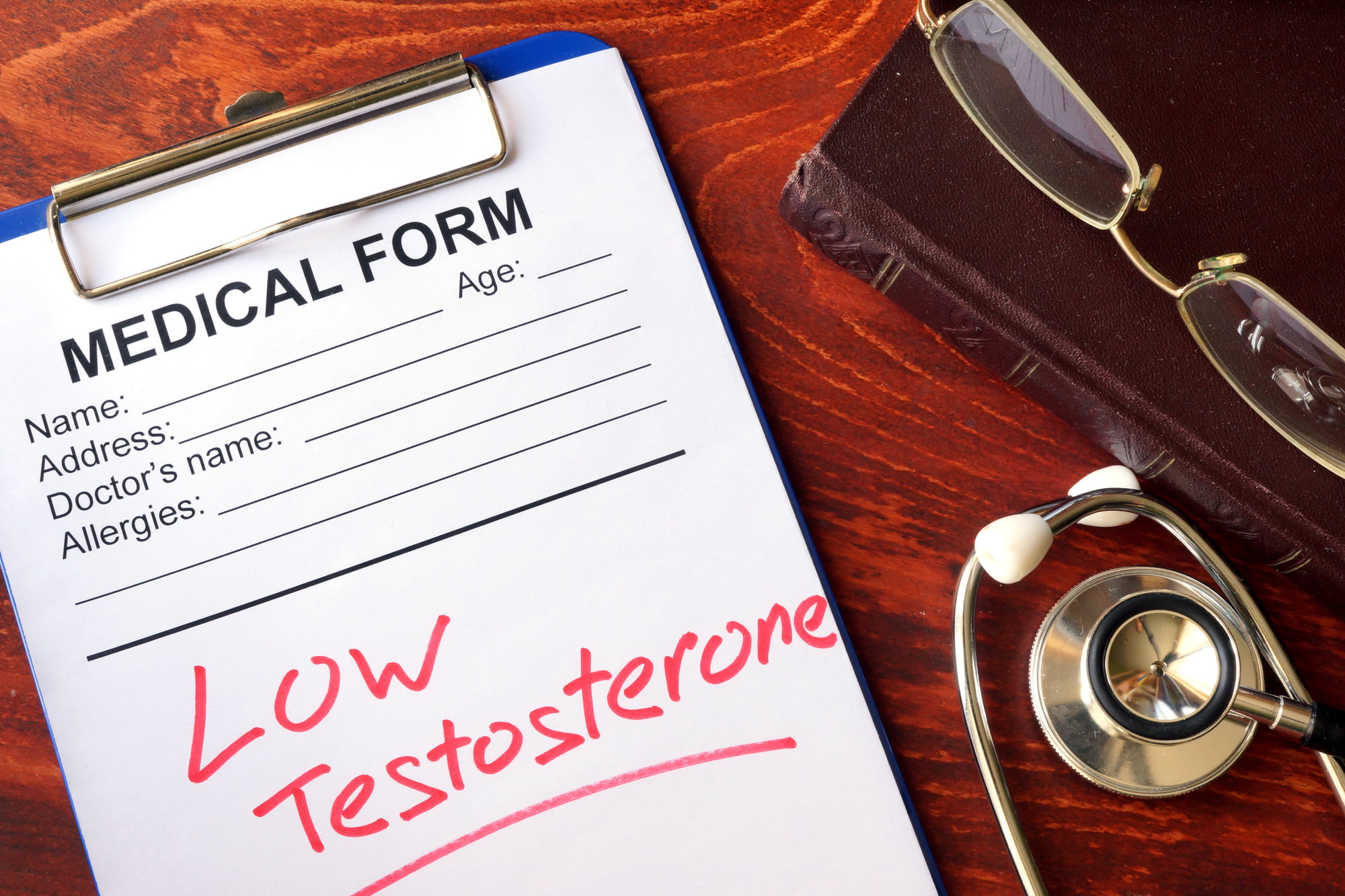If a man goes to the doctor and complains about low energy and fatigue, the first thing that the doctor is going to consider is whether that patient has low testosterone levels.
It may seem odd to think of testosterone as a medical issue since that hormone is essential for the male reproductive system’s normal functionality.
Low T can lead to a range of issues, including infertility.
In the modern world, men are living longer, and aging comes with its own medical issues, but one of the most common causes of a doctor’s visit for aging men is this low testosterone issue.
Let’s look at the signs of low T in men.
1. Low Sex Drive
Low sex drive, as a sign of low testosterone in men, can be caused by a variety of conditions such as aging, illness, depression, and stress. Low testosterone levels (low T) in the male body can cause a decrease in energy and libido.
Low testosterone levels can also cause erectile dysfunction, an inability to maintain an erection or a general lack of interest in sex. Additionally, decreased levels of testosterone can lead to weakened muscles, fatigue, and an overall decrease in well-being.
Low sex drive as an indication of low T in males should be taken seriously and addressed with a professional, such as a urologist, to determine a solution and improved health.
2. Difficulty Achieving and Maintaining an Erection
Low levels of testosterone (low T) in men can cause difficulty achieving and maintaining an erection. This can be caused by a decrease in testosterone production as men age, or it can be related to an underlying health problem.
Low T can also cause a decrease in libido and difficulty performing in bed. Low T can also cause mood swings, fatigue, and depression. It can also decrease muscle mass and energy levels, which can make it difficult for men to perform any physical activity, leaving them feeling weak and unable to work out.
Men with low T should speak with their healthcare provider to determine the underlying cause and seek appropriate treatment. Depending on the cause, treatment options can include lifestyle changes, medications, or dietary supplements.
3. Hot Flashes
When it comes to men, hot flashes are one of the most recognizable signs of low T and can be very uncomfortable to experience. Hot flashes in men typically appear as a sudden feeling of warmth that spreads throughout the body, along with profuse sweating and reddening or flushing of the face, neck, or chest.
Men experiencing hot flashes as a result of Low T can manage the symptoms by making lifestyle and health habits changes, such as exercising regularly, eating a balanced diet, and reducing stress levels.
Furthermore, hormonal replacement therapy or testosterone replacement therapy may be necessary to treat Low T-related hot flashes.
4. Hair Loss
Hair loss can be an indication of low testosterone in men and is often referred to as Male Pattern Baldness. This type of hair loss is caused by a decrease in the male hormone, testosterone, and an increase in the female hormone, estrogen.
Men who are experiencing hair loss may also notice decreased facial and body hair, as well as higher skin sensitivity. It is important to have a testosterone level checked if hair loss is suspected, as it may lead to more serious health conditions if left untreated.
Taking the necessary steps to identify and treat low testosterone can help to reduce or even reverse the effects of Male Pattern Baldness and to improve overall health and well-being.
5. Decreased Muscle Mass
Decreased muscle mass can be a sign of low testosterone levels in men, especially if the man is relatively young. Low testosterone is associated with symptoms such as a decrease in sex drive, mood swings, and fatigue.
Low levels of this hormone can lead to a decrease in the production of anabolic hormones such as IGF-1 (insulin-like growth factor 1), which is essential for muscle and bone growth.
Furthermore, decreased testosterone in the blood could lead to an increase in the catabolic hormone cortisol, further impacting muscle and bone health.
Low testosterone can therefore lead to reduced muscle mass, but it is important to note that other factors such as age, diet, and exercise are also influential.
6. Smaller Testicle and Penis Size
Smaller testicles and penis size are signs of Low T (low testosterone) in men. Testosterone is a hormone that is produced in the testicles and is responsible for physical characteristics in men.
Low T can make these characteristics decrease and also cause a decrease in testicle and penis size. There are some treatments available to increase testosterone, such as hormone replacement therapy, creams, and pills, but natural methods can also have an effect, such as exercise, proper nutrition, and reducing stress.
Low T not only affects physical characteristics but also has an effect on your mental state. If you are experiencing any of these symptoms, it is important to talk to your doctor and discuss testosterone treatments and programs.
7. Low Blood Counts
Low Blood Counts can be a sign of Low T in Men. Low Testosterone or “Low T” is a condition in which in men do not have enough of the hormone testosterone. While a decrease in Testosterone does not have to mean a Low Blood Count, a Low Blood Count could be a sign of Low T.
Low Blood Counts could cause serious conditions such as anemia Deciencies of Iron, Folate, and Vitamin B12 can contribute to Low Blood Counts. Additionally, medical conditions such as kidney or liver disease can lead to a Low Blood Count.
Treatment for Low T can be an effective way to restore Low Blood Count. If you experience signs of Low T, it is important to consult your doctor to determine the cause and develop a treatment plan.
Learn More About The Signs of Low T
Low testosterone levels can present a variety of symptoms. It’s important to take any concerning changes seriously and contact your doctor to get your hormone levels properly evaluated when you experience these signs of low T.
With the right treatments, men can restore healthy testosterone levels, leading to improved physical and mental health. If you’re concerned, don’t hesitate to speak with your doctor.
Take charge of your health today!
Did you find this article helpful? Check out the rest of our blogs!




